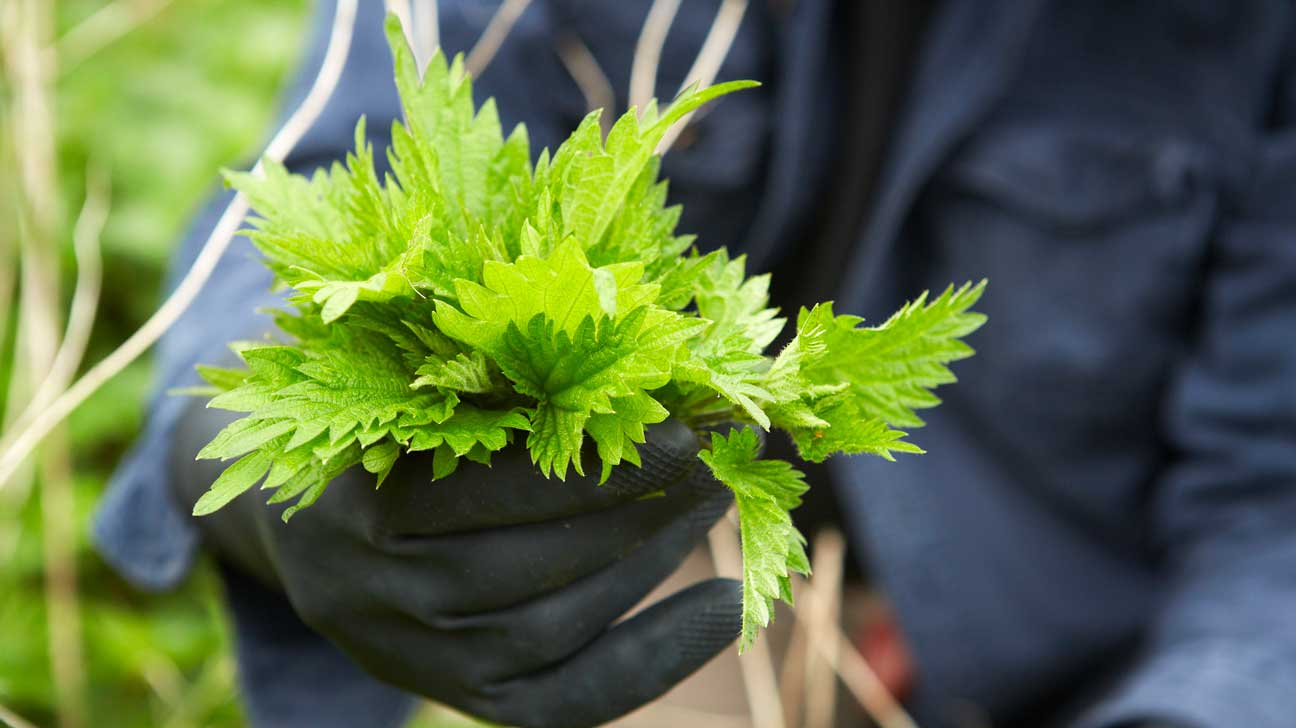What is Stinging Nettle? Health Benefits & Side Effects Explained!

June 24, 2025 by Robert Dowling | Fact Checked by Karen | Medically Reviewed by Dr. Bruce
Stinging nettle has a number of significant health advantages, such as its capacity to cleanse the body, reduce menstrual symptoms, alleviate seasonal allergies, strengthen immunity, improve circulation, raise energy, and help with skin care.
Although many people find this herbaceous blooming plant annoying when they come into contact with its sharp, stinging leaves, which can cause a rash, stinging nettle has been used for centuries to treat a wide range of medical issues.
What Is Stinging Nettle?
As far back as Ancient Greece, stinging nettle is a blooming plant that has long been used medicinally. Though its originate from the cooler regions of Asia and Europe, it is now found across the world. The plant typically reaches a height of between two and four feet and flowers from June through September. It bears pink or yellow blooms and has heart-shaped leaves. It thrives in soil that is high in nitrogen.
Stinging nettle has several beneficial health effects when processed and used medicinally. The plant is most known for the itching reaction that happens when your skin intracts with stinging hairs located on its stems and leaves. Homeopathy also makes use of it.
Although the leaves and stems of stinging nettle are used to make most products, its roots also have medicinal properties. The anti-inflammatory properties of the herb can influence how many different medical conditions are treated. Traditionally, the aboveground portions have helped with respiratory issues such as allergies. Both enlarged prostates and urinary problems might be relieved by the roots.
Health Benefits of Stinging Nettle
The leaves of stinging nettle are covered in spiky hairs. Chemicals found in these hairs, such histamine and formic acid, may cause irritation on the skin and result in stinging, hives, and redness. A variety of other substances, such as acetylcholine and serotonin, that can have an impact on people are also present in stinging nettle hairs.
Improves Prostate Health
As men age, benign prostatic hyperplasia (Benign Prostatic Enlargement) and other prostate disorders become major concerns. Stinging nettle has been shown to be a useful tool in slowing the growth of the prostate. However, stinging nettle roots cannot reverse or lessen prostate enlargement because of the chemical routes that this medication uses.
Reduces Bleeding
It has been demonstrated that applying stinging nettle topically to the skin can lessen bleeding during surgery. Made of alpinia, licorice, thyme, and stinging nettle, the product is known as Ankaferd blood stopper and has demonstrated the ability to lessen bleeding following dental surgery.
Lowers Blood Pressure
According to research, drinking stinging nettle tea on a regular basis can help reduce systolic blood pressure as well as ease stress and tension in the cardiovascular system. According to animal research, stinging nettle includes chemicals that have calcium channel-blocking and vasodilating properties.
Boosts Detoxification
Stinging nettle has been shown to gently remove toxins from the body and is a great detoxifier for your body due to its vast spectrum of useful minerals. According to research on animals, it may function as a diuretic, facilitating the speedy excretion of the poisons being neutralized within the body. It may assist guarantee that the digestive systems function properly and enhance the gut’s capacity to absorb nutrients, which could help prevent the buildup of harmful toxins.
Reduces Inflammation
Due to its possible stimulant and rubefacient properties, stinging nettle is useful in treating a variety of inflammatory illnesses. In medieval Europe, nettle tea was used as a home remedy for gout, arthritis, eczema, and joint discomfort. In a notable study, applying stinging nettle topically to osteoarthritis-affected areas showed a considerable reduction in pain when compared to a placebo therapy.
Regulate Blood Sugar Levels
Researchers have shown that consuming Urtica Dioica orally lowers blood glucose levels. It has ingredients that may raise insulin production and enhance insulin sensitivity. In a three-month trial, 46 individuals’ blood sugar levels were considerably lowered comparing to a placebo when they took a 500 milligram stinging nettle supplement three times daily every eight hours.
Lowers Joint Pain
Additionally, studies show that topically applying nettle leaves to the area of discomfort reduces inflammation and may help treat arthritis. Nettle aids in alleviation when taken orally. Another study demonstrates the anti-inflammatory properties of stinging nettle against rheumatoid arthritis and other autoimmune illnesses.
Hair Care
Rich in sulfur and silica, nettle leaves promote healthy hair growth and inhibit hair loss. Research indicates that DHT, a type of hormone that can harm hair follicles if it is produced in excess, can be blocked by urtica dioica. Because of the leaves’ possible anti-inflammatory qualities, scalp irritation may be lessened.
Skin Care
Stinging nettle extracts have been evaluated in a study and shown to potentially lessen the intensity of acne and even avoid bacterial infections when applied topically. An animal study suggests that it helps expedite the healing of wounds. It’s also a component in burn ointments.
Side Effects
When used as indicated, stinging nettle is usually regarded as safe. Nettle leaves can induce hives or a rash, therefore handling them carefully is vital. Sweating and diarrhea are typical side effects. People with kidney or bladder issues should use this herb with caution since it has a diuretic impact.
Concluding Remarks
There could be several health advantages of stinging nettle. There is, however, little data to support the herb’s potential benefits for treating allergies, BPH, and arthritis.
Although stinging nettle is generally safe, there could be some negative consequences. Because stinging nettle may interact with drugs, it is crucial to see a physician before using it to treat any ailment.
Avoid using stinging nettle products as a self-medication because the right amount is crucial. Make sure you speak with your doctor and confirm that you won’t be aggravating any existing medical conditions before including such a strong herbal medicine into your diet.






